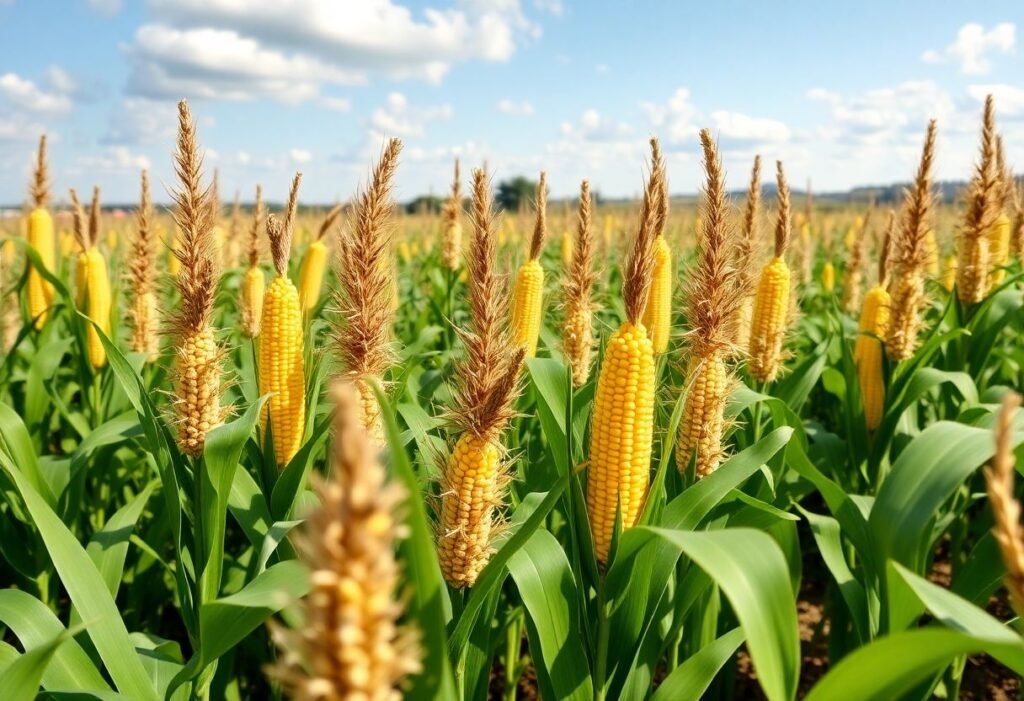Types of Fertilizers for Corn
The best fertilizers for corn can be categorized into a few main types. Primarily, there are organic fertilizers, which provide crops with vital nutrients in a natural way. These can include compost, manure, or plant extracts. On the other hand, we have mineral fertilizers, which contain synthetic forms of essential nutrients like nitrogen, phosphorus, and potassium. Both types have their benefits and drawbacks, but a well-balanced mix can yield remarkable results for corn crops.
The Importance of Nitrogen in Corn Fertilization
Nitrogen is a critical nutrient that influences corn growth and development. The best fertilizers for corn often contain high levels of nitrogen, supporting protein synthesis and increasing green biomass. Investing in fertilizers with ammonium or nitrate forms of nitrogen will allow for quicker assimilation by the plants. Regular application is vital for corn to fully explore its potential.
The Roles of Phosphorus and Potassium in Corn Nourishment
Phosphorus and potassium also play significant roles in corn fertilization. Phosphorus promotes root development and improves harvest quality, while potassium enhances the plant’s resilience against stressors like drought and disease. It’s wise to choose fertilizers that balance these three key nutrients: nitrogen, phosphorus, and potassium, achieving the most optimal results in your corn cultivation.
Fertilization Intervals for Corn
To achieve the best results in corn farming, you need to apply fertilizers at the proper intervals. Regular fertilization, especially at the beginning of the growing season, is crucial. You may need to conduct multiple applications throughout the season, adjusting them based on the needs of the plants and environmental conditions.
Testing Soil Before Fertilization
Before applying any fertilizers, it’s wise to conduct a soil test to evaluate its composition and nutrient levels. What are the deficiencies in the soil? What nutrients are in excess? This information will guide you in determining which fertilizers for corn will be best suited for application, leading to optimal results. Tailoring your fertilization strategy to your soil’s specifics is undeniably key to success.
Applying Fertilizers at Different Growth Stages
Every growth stage of corn has specific nutrient requirements. During sowing, plants primarily need nitrogen, whereas in the flowering stage, it’s advisable to boost phosphorus and potassium levels. When selecting the best fertilizers for corn, you must consider these changing requirements, allowing you to optimize your yields.
Storage and Application of Fertilizers
Proper storage and application of fertilizers are crucial to their effectiveness. Fertilizers should be stored in a dry place, away from water sources and sunlight. When applying fertilizers for corn, it’s important to follow the recommended doses to avoid over-fertilizing, which could harm the plants or the environment.
Conclusion
Effective corn fertilization is the key to thriving crops. When choosing the right fertilizers for corn, consider their composition, application schedule, and soil testing. Don’t wait, take action for your crops today!
Disclaimer
This article is for informational purposes only and does not substitute for professional advice. Consult an agronomy expert before using fertilizers.

















